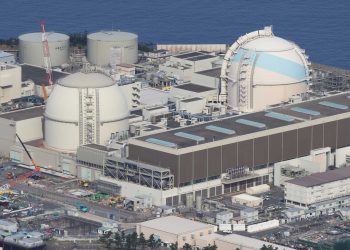Agence France-Presse,
ISLAMABAD: Pakistan freed cricket hero Imran Khan and hundreds more political prisoners Wednesday in a further easing of emergency rule as military ruler Pervez Musharraf readied to hang up his army uniform.
Officials said Musharraf would likely quit as army chief and take the oath of office as a civilian president by the weekend, meeting a key demand of the international community outraged by his state of emergency.
In the meantime authorities announced that more than 5,134 people detained under emergency measures — mostly lawyers, opposition party workers and human rights activists — had been released in the past few days.
Among them was Khan, who had been on a hunger strike since Monday.
“I personally saw him off at the prison gate,” said Sheikh Inamur Rehman, superintendent of Dera Ghazi Khan jail in central Punjab province.
A senior provincial government official said the releases were “a goodwill gesture” to ensure a level playing field before January 8 general elections. Another 623 are set to be freed in coming days, officials said.
Khan, who led Pakistan to World Cup glory in 1992 and now runs a small but vocal opposition party, had been charged under anti-terror laws after emerging from hiding to protest at emergency rule.
Musharraf, who seized power in a bloodless coup in 1999, has faced intense pressure led by the United States to end emergency rule, quit the army, hold fair general elections and free political prisoners.
Attorney General Malik Mohammad Qayyum told AFP Musharraf would become a civilian president “by Saturday or Sunday” assuming the Supreme Court rejects the final challenge Thursday to his re-election as president last month.
The court is expected to rule accordingly, having been purged of judges who refused to endorse the November 3 state of emergency.
Musharraf's spokesman Major General Rashid Qureshi confirmed it was just a matter of time.
“Once the court allows the government to notify the result of the October 6 election and once the notification is issued, he will immediately take oath as a civilian president,” he said.
With an election date set and most detainees freed, US President George W. Bush said Musharraf — a close ally in the fight against Islamic extremism — “hasn't crossed the line” where he would lose Washington's support.
“I think he truly is somebody who believes in democracy,” Bush told the US television network ABC, saying he regarded him as “a man of his word.”
But in a sign that the repression is not over, police baton-charged and tear-gassed journalists in the eastern city of Faisalabad protesting over strict media curbs, and detained 25 in the southwest city of Quetta.
The judges fired by Musharraf also remained under effective house arrest at their compound in Islamabad, with police enforcing a tight security cordon.
Musharraf had cited Islamic militancy and an interfering judiciary as the reasons for imposing emergency rule.
Pakistan's opposition, meanwhile, was still debating whether to boycott the January 8 election.
Former premier Nawaz Sharif said it is “not possible” to participate under emergency rule, while Benazir Bhutto, another ex-premier who heads the largest opposition group, is to announce her decision Thursday.
The government urged Commonwealth foreign ministers convening in Uganda to delay a decision on suspending it from the group and send a delegation to see the situation on the ground.
The foreign ministry said caretaker Prime Minister Mohammedmian Soomro had lobbied Britain's Gordon Brown and Commonwealth secretary general Don McKinnon to warn that any hasty move would be “unfortunate.”
The organisation's rights body has recommended a suspension, and ministers of the 53-nation club are expected to decide late Thursday what to do.









